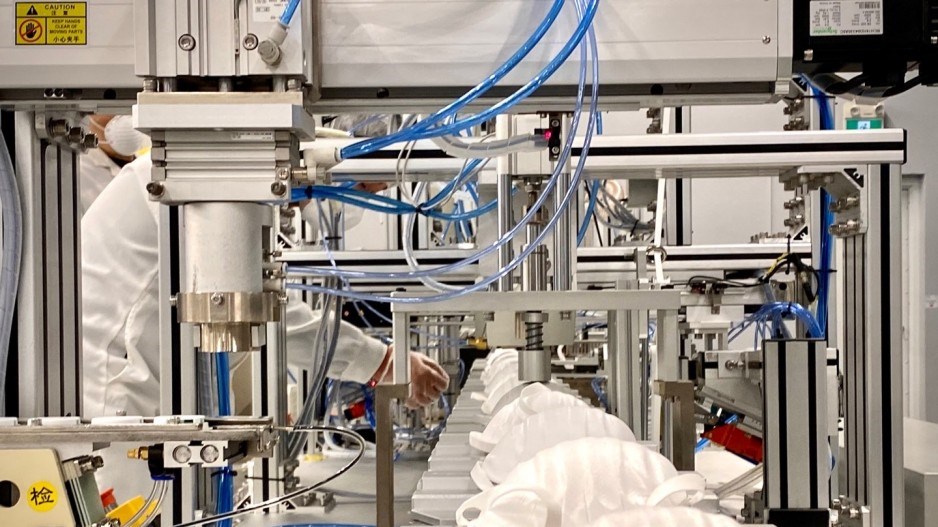Rather than egg on their faces, Jae Park wants to see Canadians with N95 masks on their faces.
Over the past week one million N95 respirators have been churning out of a Coquitlam facility — best known for producing organic snacks — that Park runs with his family.
The masks just got the nod from Health Canada earlier this month and 2.5 million are expected to ship out by next week.
“A lot of countries, a lot of industries, I guess got caught with their pants down. They realized that during pandemics, there are no friends. Meaning, if you don’t control national, regional manufacturing, the supply chain gets severed very easily,” said Park, the CEO and founder of Inno Lifecare, a division of Inno Foods Inc.
Inno Foods’ early efforts to source PPE in the pandemic resulted in a string of unexplained delays from a foreign supplier before the snacks manufacturer eventually received items it did not order.
“We were fighting for survival … Our business was hit pretty hard during COVID. In four months and we lost 60% of our sales,” Park recalled.
“We had this world-class machine and automation team [for food production], where we had a challenge: ‘Let’s make our own machine, let’s design our own machine, let’s make those machines in Canada. And then we’re going to make masks with the machines that we make.’”
After four decades spent navigating global supply chains to produce and distribute organic snacks, the Coquitlam company realized it could apply its expertise in everything from robotics to blockchain towards manufacturing its own N95 respirators.
Inno Lifecare now has five automated mask-production machines that sit at about 15 metres in length and cost about $100,000. One machine can produce anywhere from 30,000-50,000 masks each day.
“We've been running our company 24 hours, 5.5 days a week for the last five years to supply our organic snacks to the world,” Park said, adding the company produces around one to two million pouches of snacks each day.
“We're used to really high volumes in small spaces and for us, if you needed 10 million masks, just give us three months. We’d scale up.”
Health Canada’s own authorization of the Inno Lifecare masks came the same week the regulator warned of a proliferation of counterfeit N95 masks flooding the border.
Since mid-February, Canadian officials have seized close to 330,000 counterfeit N95 masks, which are illegal to sell and advertise.
Inno Lifecare’s masks ship with a traceable QR code that customers can scan to verify the authenticity of the N95 masks via blockchain stamps.
Inno Foods had already developed a blockchain-backed application for food traceability and Park said it was easy to apply that onto the production of the N95 masks.
“Local manufacturing for food, for PPEs, for a lot of different essential items is going to be, post-pandemic … so important. I want to be a part of that ecosystem,” he said.




